Umutima at the Nyamirambo Women’s Center
Where: Nyamirambo, Kigali, Rwanda
Members: 55 women
Sector: Handicrafts, community-based tourism
The Nyamirambo Women’s Center (NWC) was launched at the end of 2007 by 18 Rwandese women living in Nyamirambo, in the Nyarugenge District of Kigali, to address gender-based violence, gender inequality and discrimination. With the financial support from two Slovenian bodies – the Peace Institute NGO and the Ministry of Foreign Affairs – they introduced literacy and sewing classes for women in the neighbourhood. But although these were successful, many of the women could not go on to use their new skills without continued support.
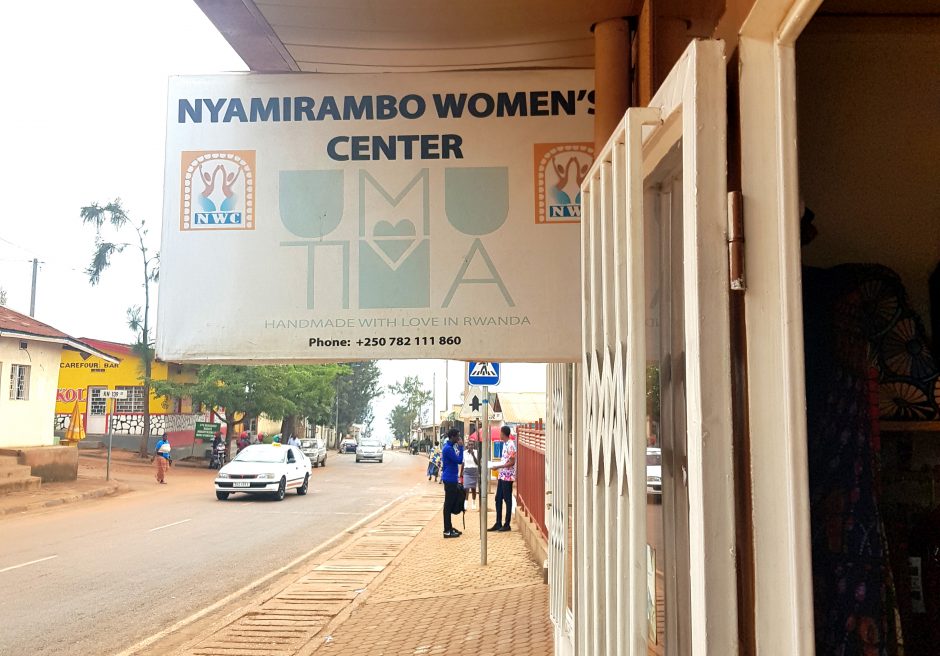
To deal with this problem, women at NWC created the Umitima (‘heart’) cooperative in late 2013, launching a product line of the same name. With this project, NWC trains and employs women from the community to create a large variety of women’s accessories, children’s clothing, and home decor products. The co-op now comprises 55 women, who are paid as seamstresses.
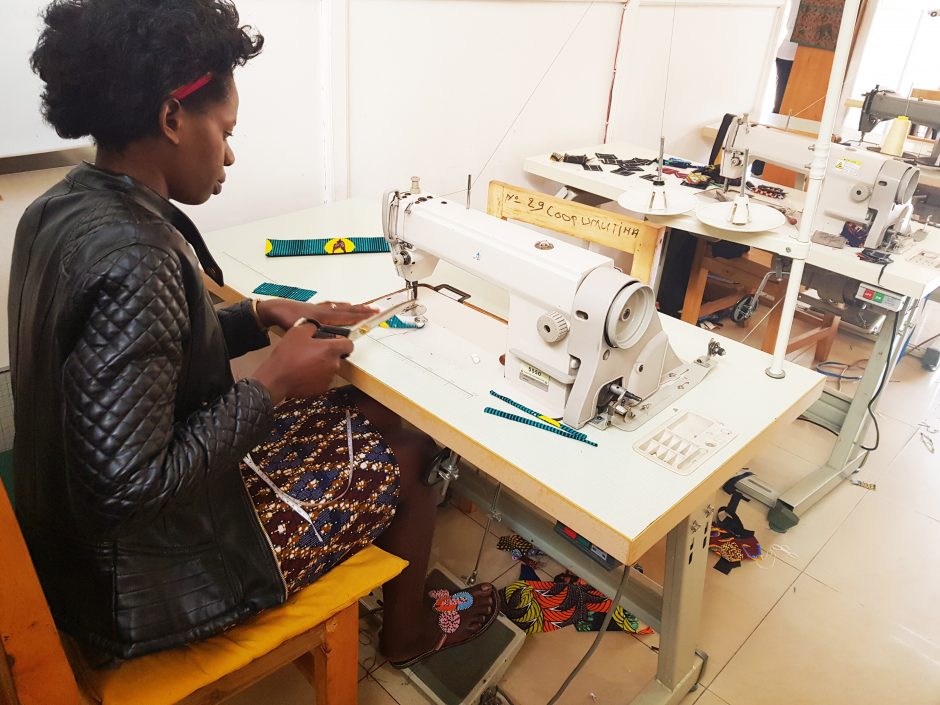
Together, Umutima and NWC have grown into a unique, self-sustaining model where the profits earned through Umutima are used to fund NWC initiatives, including education and vocational training for women and a library for local children. The library, which opened in 2014, contains books in Kinyarwanda, French and English to foster a culture of reading – and children can also gather there outside their school hours and receive homework help from the librarian (the co-op’s sole male employee).
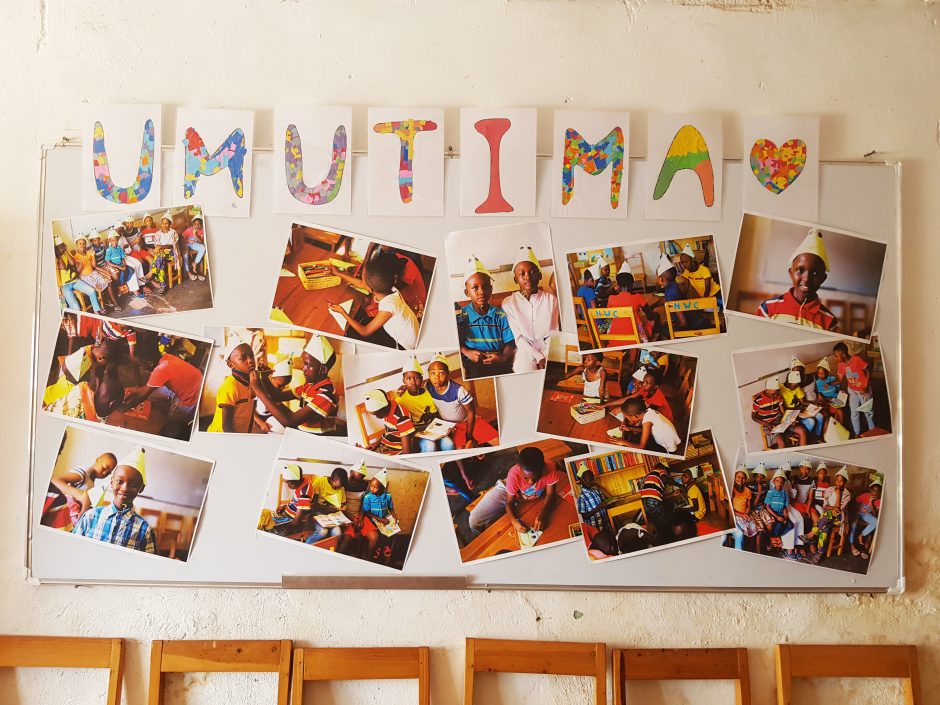
Alongside the shop, the cooperative offers sustainable community-based tourism experiences as the number of visitors to the country (in personal and professional capacities) increases. Umitima employs five tour guides who offer community walking tours around the Nyamirambo area, and also runs cooking classes and basketry classes, with the profits returning to the cooperative and its members.
TUK women’s coffee cooperative
Where: Kyonza District, Rwanda
Members: 150 women
Sector: Coffee farming
Coffee is one of the primary exports of Rwanda, with 400,000 rural small-holder farm families involved in production. It was introduced as a crop by the Germans in the early 1900s and 97% of the main crop today is still arabica (mainly bourbon).
With the government’s drive to grow cooperatives and the acknowledgement of their importance in the country’s Economic, Development and Poverty Reduction Strategy II (EDPRS II), many producers are now organised within co-operatives – including a number set up by women.
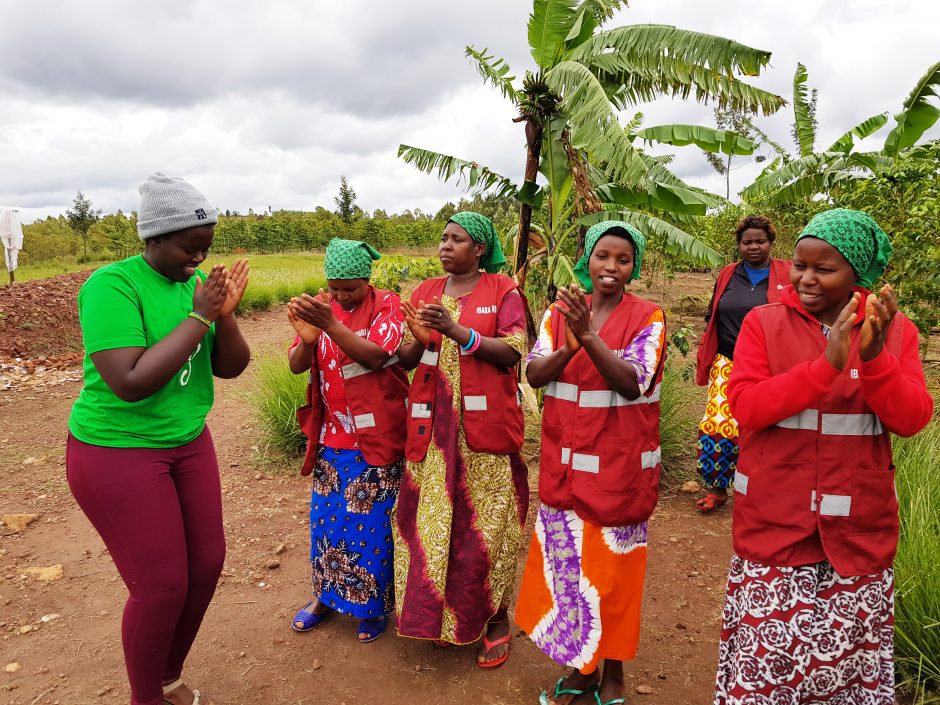
These include the Twongere Umusaruro cooperative (TUK). This works closely with Relationship Coffee Institute (RCI), which was created in 2013 by Bloomberg Philanthropies and Sustainable Harvest to transform the lives of rural, low-income women coffee farmers through training and market access. RCI started working with 4,000 female coffee farmers involved in coffee production; more women joined and the organisation now supports over 30,000 women coffee growers who are organised in 89 cooperatives across the country.
In 2015, RCI began thinking about how to make the model more sustainable, and opened up Question Coffee as a place where these cooperatives could sell and celebrate their coffee, while introducing high quality Rwandese coffee – which is usually exported – to local people and visitors.
“The only way to do that was to open up a cafe, where we sell the freshly roasted beans and serve coffee from these coops,” says Smayah Uwajeneza, a Senior Barista at Question Coffee. “In 2017, when Question Coffee itself officially became a social enterprise, we also started supplying coffee to places where people gather – to other cafes, restaurants and hotels across Rwanda.”
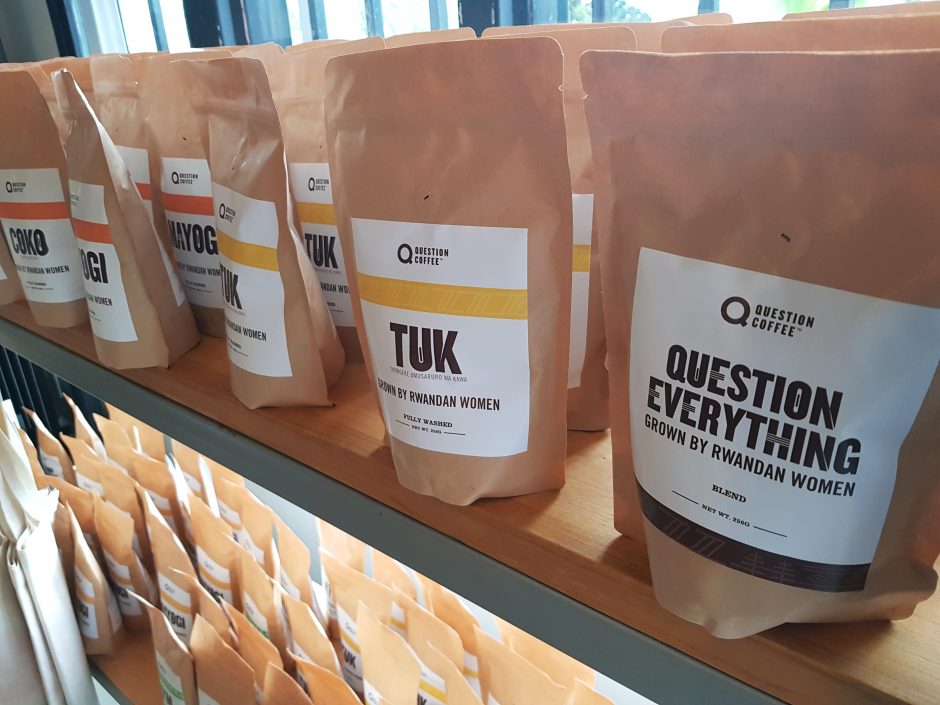
In 2018, the organisation began thinking about starting coffee tours.
“This would allow the coffee farmers to be connected to the coffee drinkers, making them aware of the need for sustainability in the production and consumption chains,” says Smayah. “And it educates coffee lovers about their favourite drink.” Question Coffee has also started a masterclass – a two-hour introduction to the world of coffee, explaining its history, the process from seed to cup, and showing people how to cup (test) coffee.
One of the biggest issues facing coops is climate change.
“Traditionally the coffee harvest runs from March to June,” says Smayah, “but the last few years have been a mix of too sunny and too wet, and coffee cherries can be harvested right up until November and December.” This means the crop can’t all be harvested at once. The women don’t want to turn on the generator to process 500kg of cherries when the equipment is capable of processing two tonnes per hour, so alternative methods, such as hand processing, are being explored.
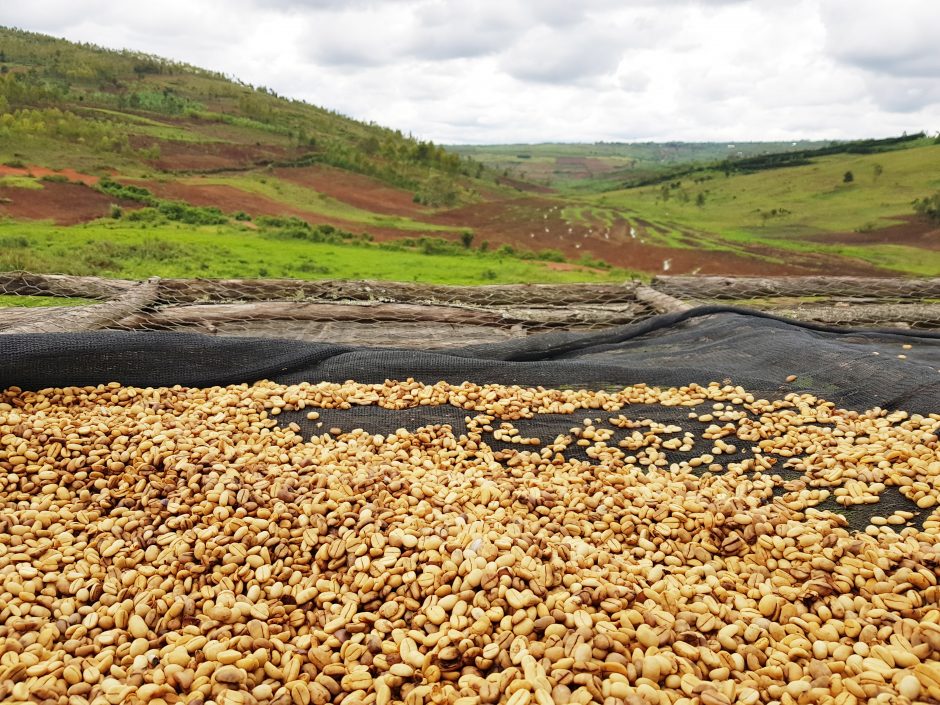
For the women involved in cooperatives such as TUK, the process has been transformative, providing a mutual strength in community and pride in working together for a common goal. Agnes Nyinawumuntu is president of TUK, elected by members.
“The cooperative isn’t just about coffee,” she says. The cooperative also provides financial and budget training to women, as well as leadership and equality training.
Before coffee, Agnes worked as a housemaid, but through the cooperative she has found a successful career, bought land, built her own house, and sent all five of her children to school. “We are stronger together”.
For all of our coverage from Kigali, click here

